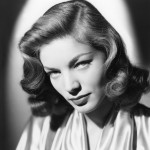Logos, Ethos, and Pathos in Persuasive Writing
 In the second semester of their first year, students make the switch from objective to persuasive writing. It’s a switch that some students welcome because they like the idea of arguing a position rather than having to be objective. As students learn, though, there’s more to persuasive writing—or at least more to good persuasive writing—than just arguing a position.
In the second semester of their first year, students make the switch from objective to persuasive writing. It’s a switch that some students welcome because they like the idea of arguing a position rather than having to be objective. As students learn, though, there’s more to persuasive writing—or at least more to good persuasive writing—than just arguing a position.
At their core, objective and persuasive legal writing share many of the same traits, such as maintaining the small scale organizational paradigm we refer to as CREAC (a/k/a IRAC). Because lawyers use that paradigm to advance their arguments, students need to master it, which makes the structure of the argument look similar to objective writing. But students need to make other, subtler changes in their writing (and thinking) to persuade effectively. It’s often challenging to succinctly explain these more subtle differences, but one easy way is to introduce the “why” behind the differences, which in turn helps explain those differences. Good persuasive writing argues a position by using a combination of three ancient rhetorical techniques: logos, ethos, and pathos.

